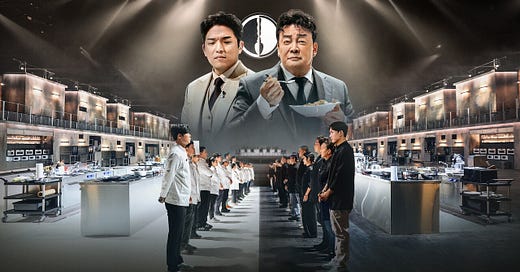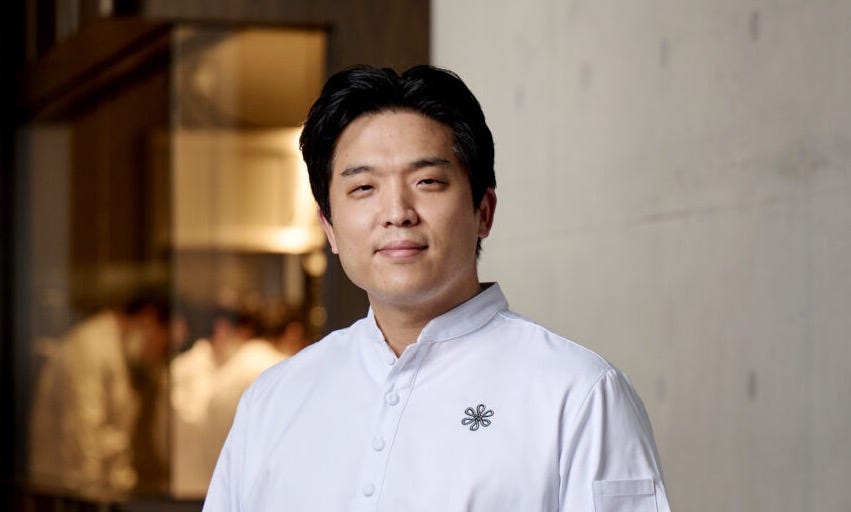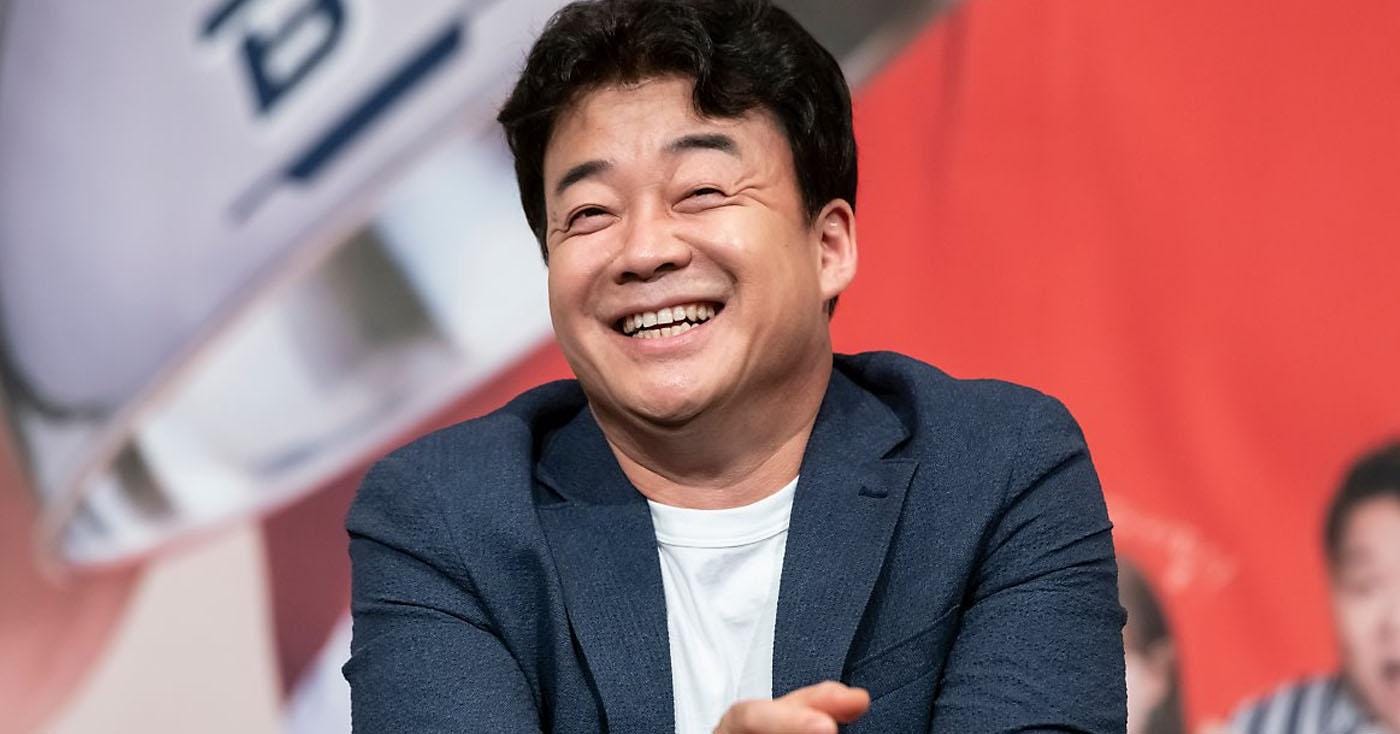Investing Reminders - Culinary Class Wars
Who would have thought I became inspired by the chefs from a Netflix reality Battle-Royale cooking show?
The last NFLX 0.00%↑ series that got me hooked was La Casa De Papel (Money Heist).
After so many years, I finally found a new series that fits my cup of tea - Culinary Class Wars.
My Michelin experiences may be sparse, but to have the opportunity to dine at a Michelin restaurants has always been the little luxuries of life that I am more than happy to indulge.
After having some pretty good first hand experiences dining in Michelin starred restaurants, although I am not qualified to work as an inspector, I can roughly differentiate what it means to have a star, and/or just a humble eatery serving excellent food.
And that all boils down to the commitments and requirements of the chef or owner, which I got to see more during the show. I am in awe of the seriousness and mastery of some of the chefs and individuals. And it did reminded me some of their traits and values can be replicated or practiced in other areas.
The show splits its contestants into 2 groups - 20 “white spoons” (prestigious or award-winning chefs working in or affiliated with Korea) against 80 “black spoons” (professionals on a smaller scale or from a lesser-known establishment) in a cooking battle for 300 million won (USD 219,000).
Without spoiling too much of the show, I would zoom into the different individuals that left a strong imprint in me.
Chef Anh Sung-jae
One of the judges of the reality show. Owner of the only 3-star Michelin restaurant in Korea - Mosu.
Chef Anh clearly is a perfectionist, and isn’t shy in giving his criticisms during the show. Whether if it’s a portrayal requirement as the bad cop or not, I wouldn’t be surprised if he acts and behaves the same in reality.
A picky judge who is very impartial, I will always remember him telling off contestants on their dishes’ lack of balance, or just as simple as not serving rice together with a salty dish for a Korean cuisine.
For him to be able to run and manage Mosu into Korea’s only 3-star Michelin restaurant serving Korean cuisine in French haute style is no easy feat. Only a perfectionist is able to do so. Chef Anh has never had any TV appearances. Word has it during the interview with the directors, he even challenged that if he judges, who is in any position to counter or challenge his views.
Reminds me that it takes grit, passion, dedication and confidence to really run and manage a performing investment portfolio.
Paik Jon Won
The other half of the judge of the show. Most of the time the “good cop”.
Paik is not really known as a chef, but a rather successful food critic and restauranteur. He is the owner of successful joints Paik’s Bibim and Paik’s Noodle, both available worldwide in many countries outside of Korea.
He might not be a great chef or cook, but his acumen of taste and business mind, allows him to build food business empires that plenty of Michelin chef can only feel envious of, without him needing to slog in the hot kitchen.
In the investing world, he might not be your Ivy League graduated Goldman Sachs or Morgan Stanley analyst, but he knows what to pick and invest in.
Chef Choi Hyun-seok
The most perfect chef of the show in my opinion. The guy can cook, lead, and run a restaurant with clear clarity of how to win.
Also one of the more snobbish chef in the show. I still remembered how he rushed to collect all the shellfish during the thematic competition, and also leading his team in the restaurant challenge.
But behind the proud appearance is a character who knows what he is doing and what he is aiming. Chef Choi is not my favourite chef of the show, but having him made the show a lot better.
His laser focus on what needs to be done to achieve, even at times where he takes advantage of others within the rules of the competition, should not paint him in a bad light.
Reminding me exactly why I should always look at my excel stock tracker, gauge my actual performance against the theoretical run-rate of my portfolio.
Chef Edward Lee
One of my favourite chef in the series.
Chef Edward Lee looks to be the most alien of everyone in the show. Even though Korean blood flows through his veins, most of his time was spent in the States when he was growing up. He owns multiple restaurants in the States and the Caribbean.
He struggled with his Korean, but chose to speak Korean in crucial moments.
His parts in the show left me the deepest impression. One of it is during the earliest part, where he was tasked with cooking up a dish using Mugeunji (aged kimchi). Having proclaimed that he only tasted Mugeunji twice in his life, he came up with a pork neck salad using the ingredient to beat his fellow Korean.
Another particular memorable scene is during the Endless Cooking Hell, where contestants needed to come up with new dishes using tofu as the ingredients. Having cooked Western cuisine for most of his life, he was still able to think out of the box to wow the judges.
Class is permanent, and mastery of a world class in any field would still be able to perform even if the odds are not in their favour on paper. It reminds me that so long if I know and master the basics of investing, I can apply what I know to all sorts of capital allocation opportunities, even outside of public equities.
Closing thoughts
I’ll go on to list Napoli Matfia, Triple Star and Cooking Maniac as well, but all three of them share somewhat the same talent and strengths as the others shared as above.
I might have some change at heart in terms of acknowledging Netflix’s business model “hacking and slashing” their way to create the next great series yet unable to fully monetise and leverage on IP.
Season 2 of Culinary Class War is a go, we’ll have to see whether like all other series, the successor series lives up to the predecessor, and whether there will be other versions of the show in other countries.
Perhaps it is time to take another look at Netflix’s financial, while waiting for the next great Netflix series.







![Star chefs in Korea] ① Choi Hyun-seok, a chef who represents culinary art with playful twists Star chefs in Korea] ① Choi Hyun-seok, a chef who represents culinary art with playful twists](https://substackcdn.com/image/fetch/$s_!fdE8!,w_1456,c_limit,f_auto,q_auto:good,fl_progressive:steep/https%3A%2F%2Fsubstack-post-media.s3.amazonaws.com%2Fpublic%2Fimages%2F6935ef10-abde-4984-b468-447e364bc84d_616x437.jpeg)
